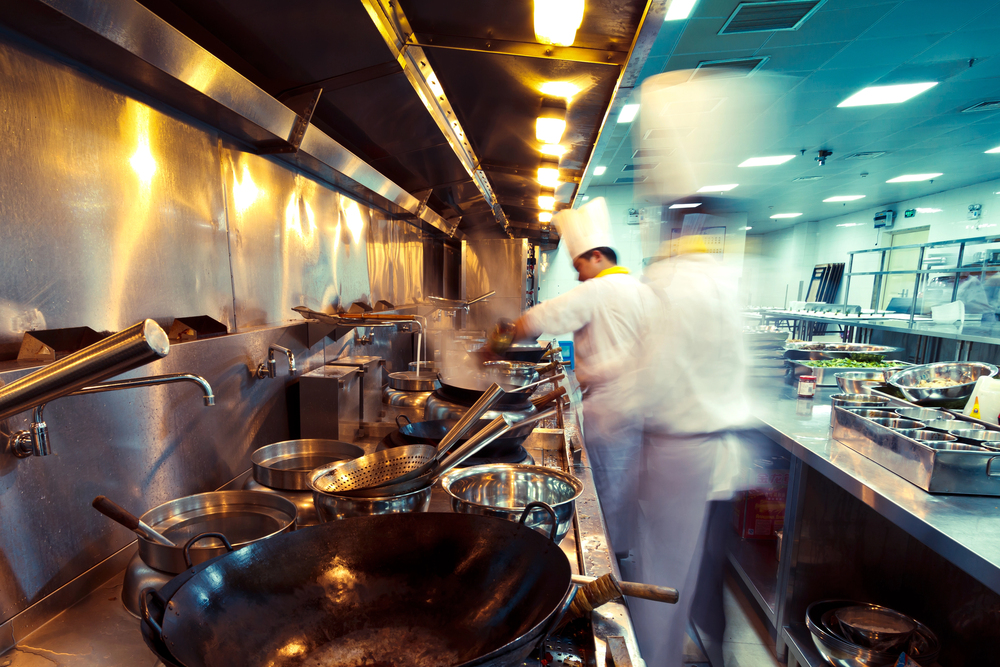3 Ways to Protect the Fast-Evolving Restaurant Industry

By: Olivia Overman
COVID-19 decimated the restaurant industry, closing more than 110,000 eateries, or 1 in 6 establishments, according to the National Restaurant Association. Today, the industry is rebounding and the creative ways restaurateurs used to sustain revenue during the coronavirus pandemic have paid off. However, those same strategies may be opening them up to new exposures.
“The restaurant industry is evolving as quickly as any other,” says Eric Coleman, vice president, small commercial underwriting and product, Nationwide. “Whether it be through changing exposures and services such as delivery, drive-thru or pick-up only, outdoor seating, new menu offerings, changes in operating hours, or new ordering methods and technology, the changes are coming fast to keep up with customer preferences and demands.”
“This is both a challenging time and an exciting time for the restaurant industry,” says Heidi Strommen, senior vice president, primary hospitality programs, Distinguished Programs. “It’s a great opportunity for agents to educate themselves on what’s happening in the restaurant segment and gain new clients by showing off their knowledge of what’s happening in the industry and how it impacts their insurance needs.”
Here are three areas agents can assist clients as their restaurant clients’ businesses evolve:
1) Educate on technology and its advantages. Today’s consumers want access to restaurants through numerous touchpoints and in a multitude of ways. They may want to eat on the premises, order online, pick up curbside or order food for delivery. As the industry evolves and consumers seek more access points, investing in technology provides a great differentiator for many restaurateurs.
However, “too many are still not purchasing even basic cyber coverage despite the fact that every modern restaurant has an exposure,” Strommen says. “No restaurant owner should consider cyber to be optional in 2022.”
In addition to offering a cyber policy, agents can educate clients on how technology can help reduce claims. “Owners can invest in devices that monitor refrigeration temperatures, check for moisture leaks, monitor grease buildup and track employee movements for safety—and it can all be viewed on the owner’s or manager’s phone app and alert employees when action is needed,” Coleman says. “The benefit is aimed to increase employee and patron safety, reduce spoilage or contaminated ingredients, and drive value toward the care for customers and business property or equipment.”
2) Review policy coverages. Agents can work with clients to ensure they have coverage for any foodborne illness claims by a patron, food contamination or recalls.
“Product liability coverage, part of a comprehensive restaurant insurance package, will provide compensation in the event of a justified third-party claim caused by a contaminated food product,” Strommen says. “Restaurants may consider purchasing separate product recall insurance, especially if they produce and sell products such as spice mixes and sauces.”
3) Highlight exposures for dining outdoors. Many restaurant owners redesigned their premises during the coronavirus pandemic to entice returning patrons to frequent their business. While customers may have enjoyed—and continue to enjoy—dining alfresco, it brings new exposures agents should highlight.
“Outdoor dining areas, where there are now more risks with vehicles in proximity to the dining area, can present more risk,” says William Hughes, vice president, commercial lines, Arbella Insurance Group, who adds that agents should consult with clients to understand “what sort of signage and physical barriers are there to not only protect the patrons, but the employees and passers-by, both pedestrian and vehicular.”
Further, “the threat of a vehicular storefront crash is real with devastating injuries or deaths to patrons and employees,” Hughes says. “Distracted driving, increasing numbers of vehicles on the roads, or even criminal intent have contributed to these events.”
Frequent communications with restaurant owners can ensure “the exposures and corresponding insurance premiums are in accordance with changes the restaurant has incurred,” Hughes says.
Olivia Overman is IA content editor.












